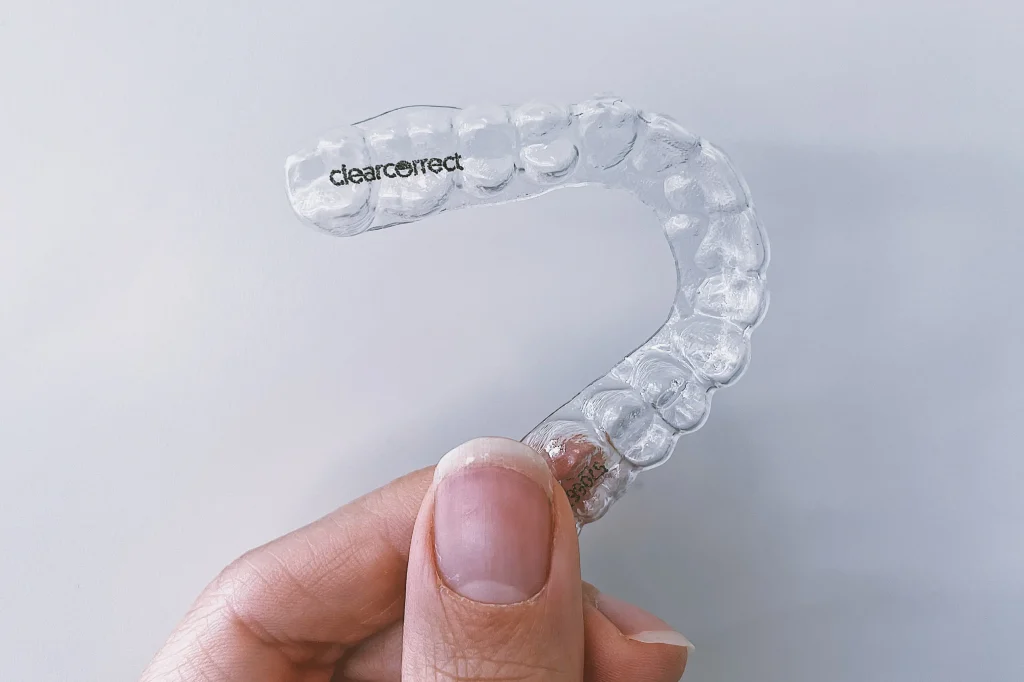
Clear Aligners are one of the most popular forms of orthodontic treatment, but how exactly do they work to straighten your teeth? Keep reading to find out.
Clear aligners are custom-made invisible braces that patients wear over time to achieve straighter teeth.
The main appeal of clear aligners is that they're removable, comfortable, and practically invisible - something which makes them particularly attractive to those who are conscious about their appearance.
Unlike traditional metal braces, clear aligners are molded to cover the whole tooth, and therefore need to be removed to eat, drink, and brush your teeth.
Clear aligners can actually treat a surprising array of dental issues, such as:
Whether or not clear aligners are an effective dental treatment all depends on the severity of the above issues. A licensed dentist or orthodontist will be able to advise you on this.

Clear aligners are made out of plastic, although some market leaders have developed sophisticated technologies that make their aligners more comfortable, discreet, and effective than others. ClearCorrect, for example, uses patented ClearQuartz™ technology to create their aligners, which offers superior comfort and stain and crack resistance.
Clear aligners work by applying gentle pressure on your teeth so that they align over time. This pressure travels through the roots of your teeth all the way to your jaws, which force the teeth sockets to move into a better position.
Patients will receive several aligners to wear throughout their treatment, although the numbers can increase depending on the severity of the case. These trays must be worn 22 hours a day to be effective, and must only be removed to eat, brush and floss.
There are a number of ways through which clear aligners straighten your teeth.
Engagers are little tooth-coloured bumps of composite material that your dentist or orthodontist will bond to your teeth during treatment. These help add pressure on your teeth from your aligners, so that they move in the right direction.
In some cases, your clear aligner treatment may require elastics - a rubber band that connects the top and bottom rows of your teeth. These are typically hooked onto slits in the aligners or buttons on the teeth, and are especially effective at improving the alignment of your bite.
The exact length of treatment depends on the severity of the malocclusion.
Each new set of aligners will move your teeth slightly before you move on to another set of aligners, every 2-3 weeks, according to the wear schedule established by your doctor. This means that if just a few of your teeth are slightly out of alignment, your treatment may only last six months (as long as your wear schedule is adhered to). However, patients with more complex alignment issues may require treatment for up to two years or longer.
It’s worth noting that if you don’t wear the aligners for 22 hours a day as instructed, the treatment will be prolonged and much less effective. And while this may seem like a serious commitment, you could begin to see results after just 4-6 weeks of beginning treatment.
Both traditional braces and clear aligners are excellent options for achieving a straighter smile and better oral health. However, both options have their respective pros and cons.
Ultimately, there’s no one-size-fits-all when it comes to orthodontic treatment, as everyone’s teeth are different. We always recommend consulting an expert to find out which is best for you.
It’s essential to speak to a registered dentist or orthodontist before deciding to get clear aligners. Doing so will ensure that you’re fully informed and on track to receiving the most suitable treatment for your case. Why not visit our website to book an appointment with one of our dental experts?